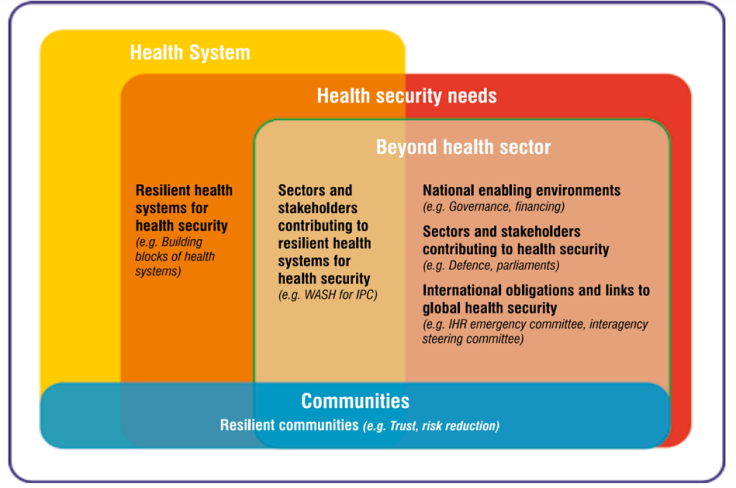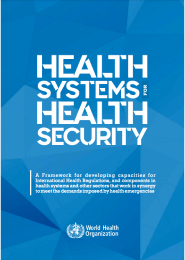
What does this mean in practice?
WHO is committed to supporting countries in articulating concrete multisectoral partnership actions to build, strengthen and maintain health systems that would contribute to health security at national and global levels. In this regard, the EHS unit launched the WHO HSforHS framework in May 2021, which is now available in all six UN languages.
The framework aims to support countries, WHO and partners in bringing together health systems capacities and other sectors to complement the implementation of the IHR. This is supported through the identification of foundational elements of health systems for health security and the enhancement of multisectoral and multidisciplinary engagement for effective management of health emergencies.
Purpose and objectives of the Framework
Purpose: To help countries, partners and WHO be better prepared to manage public health events by closing the gaps in health systems. This would lead to improved health security preparedness.
Objectives: Solidify a common understanding of what health systems for health security entails and how it contributes to better emergency preparedness to prevent, detect and respond to threats and events, identify all capacities that are necessary for health security, including capacities from the current WHO benchmarks for IHR, health systems and other sectors
Implementation tools
Alongside the framework, the EHS unit is developing implementation tools to guide countries on how to build health systems capacities for health security.
Benchmarks for health systems for health security (available soon): This technical document is intended to support the framework by mapping all capacities that are relevant for HSforHS for helping countries to plan and prioritize HSforHS capacity development activities.
Health system for health security global database (available soon): The database is based on a comprehensive list of indicators, determinants and available data sources that will help countries and WHO to assess countries’ strengths and gaps in HSforHS and prioritize actions needed for the enhancement of health security.
Information and training package (available soon): The package contains resources for raising awareness, sensitizing and training relevant stakeholders at all relevant levels on the need and approach to HSforHS (at global, national and local levels).

